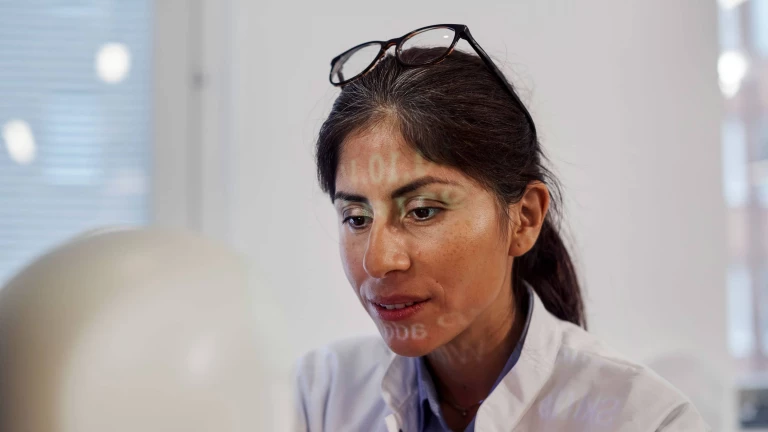
Using GenAI to Expand Understanding of Health Care Solutions
BCG and Zeiss developed an application to give prospective patients fast, accurate, validated answers about elective treatments.

Medtech companies face significant challenges, old and new. BCG uses deep industry knowledge, proprietary tools, and customized solutions to turn these challenges into opportunities.
Even before the COVID-19 pandemic, companies in every sector of the medical devices and technology industry grappled with the quickening pace of innovation, slowing product pipelines, changing sales models, increased competition—and newer challenges stemming from the increasing presence of digital in every aspect of the business.
But the flip side of challenge is opportunity, and the opportunities in this high-growth, high-margin industry are many. They include using advancements in medical technology to improve health care delivery and embracing digital to improve operations. Our medical technology consulting experts help clients assess their priorities and strengths and then move decisively to optimize operations, marketing and sales, R&D innovation, and other parts of the business.

BCG and Zeiss developed an application to give prospective patients fast, accurate, validated answers about elective treatments.

A global leader in prostheses, Ottobock set out to also become the ESG leader in its field. The key: measuring the socioeconomic benefit of its products.

Next-Generation Sales. A leading medtech company used our Build-Operate-Transfer approach to prepare its sales function for the future and accelerate growth. The effort included launching a 150-person internal sales function to replace third-party manufacturers’ representatives. In less than a year, sales rep productivity doubled while sales costs dropped by 30%.

Global Supply Chain Transformation. A medtech enterprise cut 5% of its baseline distribution and logistics costs, while reducing delivery times and improving service levels, after we used big data and advanced analytics to improve the company’s global supply chain. Actions included redefining shipping lanes for more than 50,000 SKUs delivered to customers globally.

R&D Portfolio Optimization. After we analyzed and prioritized a US medtech company’s R&D portfolio, the organization redirected more than 25% of its R&D resources and investments to higher-priority projects and installed an enterprise-wide board to make decisions about strategic goals.

Medtech Analytics Creation. Our medical technology consultants created an analytics tool for a top-25 global medtech company. The tool uses natural-language processing to comb through electronic health records for symptoms of untreated and potentially severe cardiovascular disease and provides a mapping of the patients to their consulting physician and respective hospital system.
Our medical technology consulting practice blends its expertise in medtech strategies with a set of proprietary tools, including comparative benchmarks, databases, and other knowledge assets. Some highlights:
The Milkman Benchmarking Study
BCG has tracked commercial excellence in the medtech industry since 2011. The Milkman benchmark assesses commercial maturity, financial performance, and field sales, marketing, and support function productivity. Companies that have acted on the recommendations of our original study are winning the market and generating superior shareholder returns.
The Medtech Innovation Study Benchmark
Innovation is the medtech industry’s lifeblood, but it’s difficult to benchmark because industry sectors use different innovation models, each with different performance metrics. Our medtech innovation benchmark fills the gap. It covers all major industry subsegments and includes detailed financials, qualitative findings from interviews with medtech R&D department heads, and survey responses from R&D personnel.
Our Digital Capabilities
Our medical device business strategy consultants can also call upon experts from BCG X, BCG’s tech build and design unit. These experts cover an array of specialties—including technologists, scientists, programmers, engineers, and human-centered designers—working to disrupt the present and create the future through bold new products, services, and businesses.

The number of ESG regulations continues to grow. Leading medtech companies are going beyond merely complying to gain competitive advantage.

Costs for genomic sequencing have dropped steeply, making new types of genetic tests more accessible and changing the business model for the labs that run them.

By developing products for a broader base of patients and markets, medtech companies can improve health outcomes, generate business advantages, and contribute to healthier societies overall.

To realize the promise and potential for GenAI, medtech executives must make swift and targeted efforts.